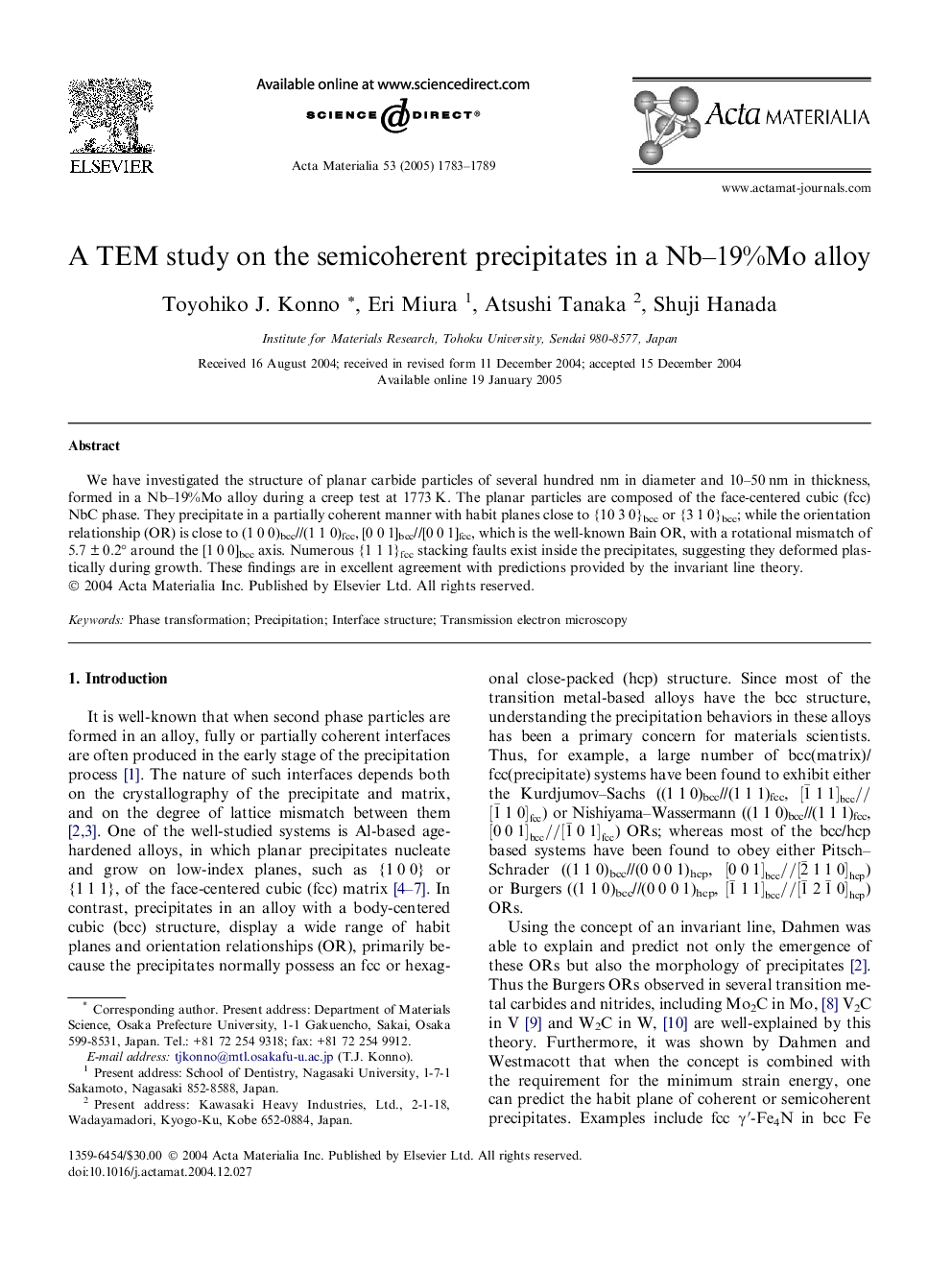| Article ID | Journal | Published Year | Pages | File Type |
|---|---|---|---|---|
| 10621122 | Acta Materialia | 2005 | 7 Pages |
Abstract
We have investigated the structure of planar carbide particles of several hundred nm in diameter and 10-50 nm in thickness, formed in a Nb-19%Mo alloy during a creep test at 1773 K. The planar particles are composed of the face-centered cubic (fcc) NbC phase. They precipitate in a partially coherent manner with habit planes close to {10 3 0}bcc or {3 1 0}bcc; while the orientation relationship (OR) is close to (1 0 0)bcc//(1 1 0)fcc, [0 0 1]bcc//[0 0 1]fcc, which is the well-known Bain OR, with a rotational mismatch of 5.7 ± 0.2° around the [1 0 0]bcc axis. Numerous {1 1 1}fcc stacking faults exist inside the precipitates, suggesting they deformed plastically during growth. These findings are in excellent agreement with predictions provided by the invariant line theory.
Related Topics
Physical Sciences and Engineering
Materials Science
Ceramics and Composites
Authors
Toyohiko J. Konno, Eri Miura, Atsushi Tanaka, Shuji Hanada,
